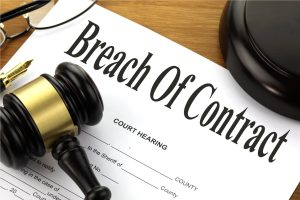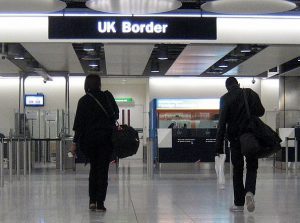Employers on the hook for their tax cheating workers
A new law calls on employers to do what they can to stop their employees and contractors from evading their tax.
The Criminal Finances Act 2017 (CFA 2017), means that employers commit an offence if they fail to prevent an employee, agent or other person engaging in tax evasion in the UK or abroad.
It is also an offence if people associated with a corporate body knowingly help another organization in criminally facilitating tax evasion.
The law is a new attempt to criminalise tax evasion by targeting freelancers, contractors or consultants who cheat. Section 45 of the law has created two new offences that came into force on 30 September.
The section states that a body corporate or partnership will be guilty of an offence if a person commits a UK tax evasion facilitation offence when acting in the capacity of a person associated with that body.
It goes on to state that such a person commits a UK tax evasion facilitation offence by being knowingly concerned in, or in taking steps with a view to, fraudulent tax evasion by another person and aiding, abetting, counseling or procuring the commission of a UK tax evasion offence.
Employers can benefit by using consultants rather than employees because they do not have to deduct income tax from the worker or pay employer’s national insurance. Nonetheless, it is the contractors who are the main beneficiaries. The law wants consultants to be genuine contractors and not employees masquerading as consultants to evade income tax.
Employers should have procedures
An employer should have procedures that stop their workers from evading tax in order to comply with the new law. Nonetheless, employers’ procedures do not have to prevent any and all tax dodging in order to be reasonable. Furthermore, an employer can be tried summarily or on indictment and can be punished with a fine.
The law treats employees, workers, self-employed contractors and freelancers differently. Employees have the greatest protection under the Employment Rights Act 1996 (ERA) and employers usually deduct their income tax payments through PAYE. Workers are not quite employees but they enjoy some employees’ rights such as the right to paid holidays and the right not to suffer unlawful deductions from wages. Freelances do not come under the ERA. Under normal circumstances, they are treated as if they own their own business and so are responsible for their own tax.
The Government has published guidance on tax evasion: Tackling tax evasion: Government guidance for the corporate offences of failure to prevent the criminal facilitation of tax evasion. It can be found on the gov.uk website.
Related News Stories
An advanced mental health practitioner was recently awarded over £60,000 after he was sacked without a fair process. An employment…
The CBI has been rocked by accusations of rape and sexual misconduct. With its reputation in tatters, members leaving by…
Swearing at work was ruled acceptable by one employment tribunal judge, while another gave out £71,000 in compensation when a…
Government agency bosses used a flawed procedure when firing a top foreign envoy for a sexual harassment accusation. The British…
Employers risk making poor and costly decisions in response to employees asking to work from their homes. Two cases have…
A judge slapped down an employer who failed to follow a fair procedure when sacking a nurse for being racist.…
A well-known clothes store's flawed promotion and assessment process landed them with a £96,208 judgement at an employment tribunal. Bristol…
An employer lost an unfair dismissal case after summarily sacking an employee rather than go through a fair procedure. London…
The government has increased the scope for employers to sack employees without the threat of court cases. The new law…
A high street giant’s attempt to cut their staff bill was slapped down recently due to employment law. The High…
A landmark court ruling has boosted employment lawyers’ chances of protecting ‘sex change’ workers from harassment and unfair dismissal. Birmingham…
Government have changed their advice on telling employees to return to the workplace due to a spike in virus infections.…
The looming end to the government’s job subsidies in November will lead to some cynical bosses using redundancy to victimise…
A rail company did not need extensive medical evidence to sack an employee for being too sick to work. Employment…
An employment tribunal in November 2016 decided that a company fairly dismissed a worker when her refusal to do overtime…
Foreign workers have a right to appeal if they face dismissal over doubts about their UK residency status, appeal judges…
New legislation compels people in a workplace dispute to talk before going into legal battle in a court. Whether they…

















